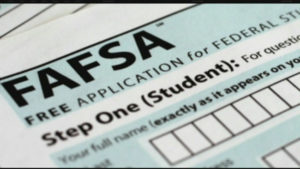Dear Liz: I read your column in which you talked about the Roth IRA and how withdrawals can be penalized if you’re younger than 59½ or the account is not 5 years old. But are there any exceptions? Can we withdraw from our Roth IRA and not pay any tax or penalty if we use the money to pay for our children’s college?
Answer: You can avoid the early withdrawal penalty, but you’ll owe taxes on any earnings you withdraw from a Roth IRA when you use the money for qualified higher education expenses.
To recap, you can always withdraw an amount equal to your total contributions to a Roth IRA without owing any taxes or penalties. You don’t even have to wait five years.
When you withdraw earnings, however, you can avoid taxes and penalties only if the account is at least 5 years old and you’re 59½ or older, or you’re taking the distribution because you’re totally and permanently disabled, you inherited the Roth IRA from the account owner or you’re using as much as $10,000 for a first-time home purchase.
If you don’t meet those qualifications, there are still ways to avoid the penalty if not the taxes.
Withdrawing money to pay qualified education expenses is one of those exceptions, as is paying medical expenses that exceed 7.5% of your adjusted gross income, withdrawing as much as $5,000 after the birth or adoption of a child, paying an IRS levy, taking a qualified reservist distribution if you’re a military reservist called to active duty or taking a series of substantially equal periodic payments.
Let’s say you’ve contributed $20,000 to a Roth that’s now worth $30,000. The first $20,000 you withdraw is tax- and penalty-free. The final $10,000 you withdraw would be taxable, but it would not face the 10% early withdrawal penalty if you used it for your children’s college tuition, fees, books, supplies or other qualified expenses.
 Today’s top story: Will a summer job burn your financial aid for college? Also in the news: 4 cool-down summer escapes you can book with points, new tools that can help turn your retirement savings into a steady paycheck, and how how to find out if you’re eligible for a $20,000 payment from Equifax data breach.
Today’s top story: Will a summer job burn your financial aid for college? Also in the news: 4 cool-down summer escapes you can book with points, new tools that can help turn your retirement savings into a steady paycheck, and how how to find out if you’re eligible for a $20,000 payment from Equifax data breach. Today’s top story: Teach your teens about college costs long before they apply. Also in the news: Haggling for vacation souvenirs, getting cheap car insurance for new drivers, and what to do with unexpected money.
Today’s top story: Teach your teens about college costs long before they apply. Also in the news: Haggling for vacation souvenirs, getting cheap car insurance for new drivers, and what to do with unexpected money.